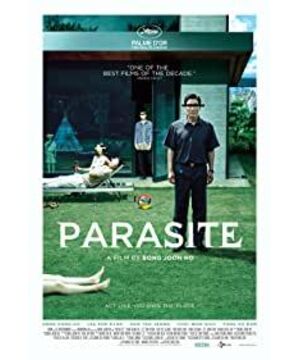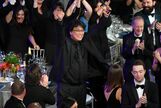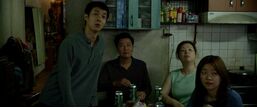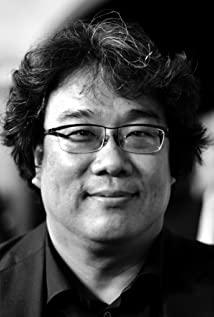"Parasite" and "Crouching Tiger, Hidden Dragon" are the same movie, the difference is that the former is a highly industrialized product, while the latter has a strong author's imprint.
Entering/criticizing "Parasite" can also choose two paths of form and content. Formally, shots, colors, composition, scenes, and highly condensed dramatic conflicts can all be summed up in three words: clean, neat, and clear. Although there are slow motions that increase the pressure and heaviness, it also plays a role in soothing the emotions generated during the orgasm.
All in all, the lens language of "Parasite" is different from the chaos of ordinary commercial films, showing the clarity that industrial films can achieve.
The easiest part of Parasite to interpret is its content, and its metaphors.
The metaphor can point to the class antagonism under the gap between the rich and the poor; it can point to the reality of Korea under the highly developed capitalist system; it can point to the relationship between Korea and the West.
In my opinion, the metaphorical charm of "Parasite" comes from "inverted beauty".
Feng Junhao has the calmness of Li An, like a knife in the dark, which makes people feel chills down their spines.
Li An's "Crouching Tiger, Hidden Dragon" may also be influenced by the subconscious or Wang Dulu. From time to time, the film reveals the unclear relationship between Master Li Mubai and the jade-faced fox, which makes Li Mubai's sincerity and teaching appear false and contrived.
The old wife, young body, and wild character all make the unique scholar-official spirit in the film a piece of paper that wraps people's desires, crisp and transparent, looming.
Feng Junhao doesn't have the pressure of the original book (maybe, I don't know), and even if there is, his calm control of "Parasite" seems cruel.
First of all, "Parasite" creates a confrontation between the poor and the rich, ranging from large to living environment, small to food, clothing, housing and transportation, which is on the table.
Immediately after, "Parasite" began to activate the "metaphor of perversion": allowing the poor to easily defraud the rich (obviously this is impossible). In the process of deception, the one below dominates the one above, completing the first "inversion".
Feng Junhao did not stop at the simple and cheap pleasure of the poor oppressing the rich, but further depicted the realistic spiritual outlook of the poor family.
From the point of view of his younger brother Kim Ki-woo: he knew that a girl his friend liked was still "stalking"; he provoked a girl (I forget whether it was underage or not) in a text message to go to bed. The former is the metaphorical destruction of the moral fantasy of "friends and wives cannot be deceived", revealing the true desire of the bottom. The latter is the manifestation of human nature after transcending the moral constraints (teacher-students, friends, adults and minors).
If only the desire to stop at the poor side is real, the conflict in the film will not stand, and I will not compare it with Crouching Tiger, Hidden Dragon.
As mentioned above, "Crouching Tiger, Hidden Dragon" has a blade in the dark, and so does "Parasite".
President Park's ambiguous statement about his wife's love; fantasies about dirty underwear in the living room; wife's request for drugs before sex... In order to fire the driver, Kim Ji-ting didn't leave much explanation after leaving his underwear. But isn't the imagination of President Park and his wife about drugs after discovering their dirty panties the misleading result of their daily experience?
In the metaphor, "Parasite" seems to have completed the blatant oppression and insult of the rich by the poor, and it is a one-dimensional revenge, but in fact it contains criticism of both sides.
What else did President Park try to arouse sexual desire? What else has the wife succumbed to for drugs? This is the desire of the rich. What is more terrifying than the desire of the poor is that the desire of the poor is directly naked, while the desire of the rich is hidden under the envelope of civilization, an unpredictable black hole behind civilization.
Just like the construction of this house, on the surface, it is a magnanimous artwork, and there is a cramped and dark air-raid shelter underneath. Whether civilization is civilization itself or an ornament in the basement of desire is unknown. Here, the metaphor breaks away from the simple class opposition between the rich and the poor, and increases the criticism of civilization and the understanding of human nature.
The rule of the inferior over the superior became a visual deception, and the "inversion" was turned upside down again, becoming a bitter mockery of the poor.
When someone shouts: "They obviously did nothing wrong!", "parasitic" is no longer a metaphor for the poor to depend on the rich, but points to the question of what the rich, the West, and civilization are built on. .
Poor/rich, developed/third world, civilized/savage, who parasitized whom?
The original title is "Who Is Parasite Parasite"
View more about Parasite reviews











